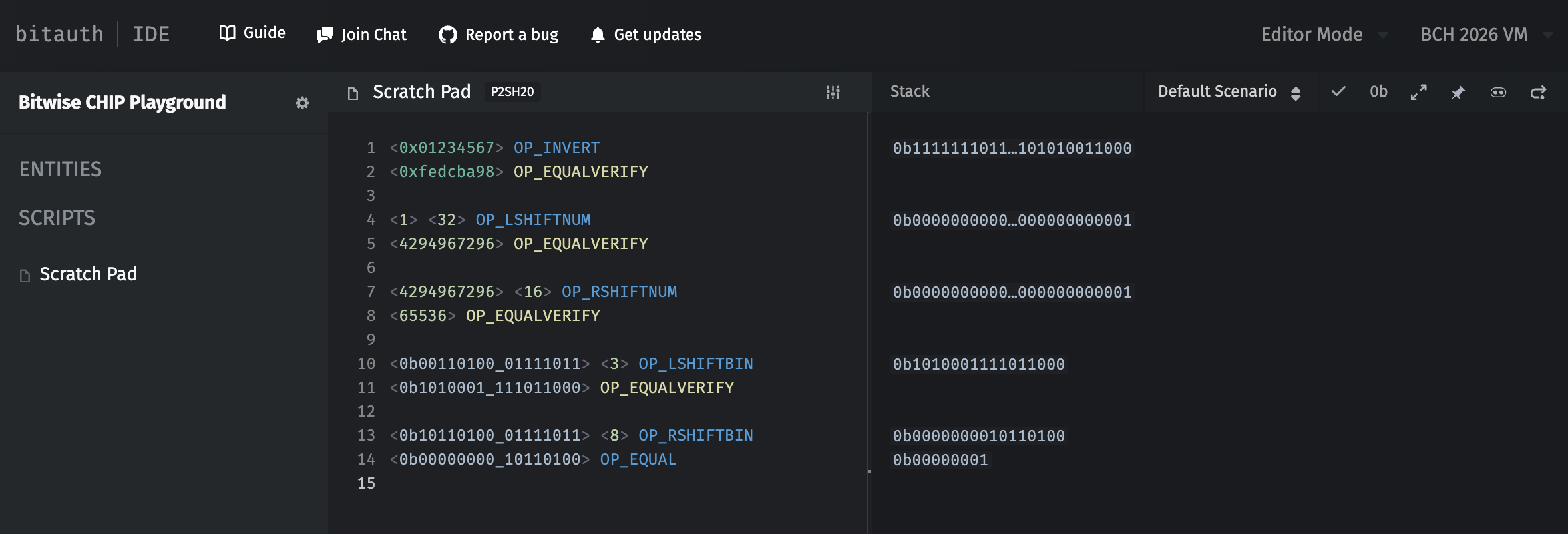Even with solutions for loops, functions, and longer contract lengths, many critical algorithms for financial and cryptographic applications remain relatively inefficient if arithmetic and logical bitwise shifts must be emulated.
The cost of an emulated shift can easily be >10x native shifts, creating significant complexity in contract design, waste in transaction sizes, and unnecessary validation in full nodes.
Re-enabling OP_LSHIFT and OP_RSHIFT has been raised many times since the 2018 opcode restoration (e.g. 2023, 2024), but uncertainty about VM limits and BigInt support made it difficult to evaluate implementation details.
With the 2025 upgrade now behind us, I think we should consider re-enabling the remaining bitwise operations in 2026: OP_INVERT, arithmetic bitwise shifts, and logical bitwise shifts.
If you have thoughts on this topic, I’d love to hear them.







